For the first time in its 60-year history, the member nations that govern the Inter-American Development Bank (IDB) — the Western Hemisphere’s premier multilateral development finance institution have selected an American to be its next president. And not just any American: A White House political appointee Mauricio Claver-Carone is a Cuban-American lawyer, an ally of Senator Marco Rubio, and former lobbyist who trafficked in highly partisan polemics. As an official at the National Security Council, Claver-Carone became known more for wielding punitive sanctions than for any deep expertise in development economics.
How to explain the paradox of Latin American and Caribbean governments — that together control a majority of the voting power in the IDB board — elevating on September 12 the nominee of a U.S. president famous for his diatribes against Latin Americans, a president who stepped foot in the region only once (for an international meeting) during his nearly four years in office?
This perplexing behavior reveals the geopolitical realities that characterize today’s inter-American relations. The United States demonstratively retains coercive powers in its traditional sphere of influence among the smaller states of Central America and the Caribbean. Within Latin America, countries are deeply divided among themselves along several cleavages, and cooperation among states has frayed. Overall, power has tilted back toward Washington as it seeks to counter rising Chinese influence in the region.
Further, the COVID-19 pandemic wracking Latin America has depleted national energies and diverted attention away from international relations. Sheltering in place, prospective candidates for the IDB job were denied the opportunity to mount effective, in-person region-wide campaigns.
Disarray in Latin American diplomacy
The IDB was established in 1959, in response to pleas by Brazil for a regional economic development agency. A receptive Washington wanted to counter anti-U.S. sentiment — as experienced by then-Vice President Richard Nixon during a turbulent visit to Caracas in 1958 — and to prevent a repetition of the 1959 Cuban revolution.
Unlike the International Monetary Fund and World Bank, where the United States and Europe guard their dominant shares and exclusive control over leadership, the IDB was established as a borrowers’ bank. The Latin Americans were awarded just over 50% of the voting shares and, by custom, the powerful presidency. Over its 60 years, all four presidents have hailed from the region; all four had distinguished records of public service before assuming the IDB leadership.
But the United States, by far the largest donor and guarding 30% of the voting shares, retained a strong behind-the-scenes influence in the Washington-based agency. By custom, the executive vice president was an American. Ultimately, the bank’s evolving policy agenda and lending portfolio represented a careful balance among U.S. and Latin American preferences.
The outgoing president, Colombian Luis Alberto Moreno, made clear early on his intention to step down this fall. But the Latin American governments failed to rally and nominate a unity candidate. Since the times of the independence hero Simón Bolívar, dreams of continental unity have been shattered by national divisions, ideological conflicts, and egotistic rivalries. But rarely has regional diplomacy been in such bad shape.
Currently, the three largest Latin American countries — Mexico, Argentina, and Brazil, controlling 6.91%, 10.75%, and 10.75% respectively of IDB voting shares — are inward-looking and bereft of international ambitions. The populist president of Mexico, Andrés Manuel López Obrador, shows remarkably little interest in international affairs, beyond placating Donald Trump. The conservative president of Brazil, Jair Bolsonaro (a former military officer), has purposefully diminished Brazil’s international activism, preferring instead close alignment with Trump’s Washington. Hapless Argentina has been consumed by yet another debilitating default on its external debts.
The governments of Mexico and Brazil share with Trump a distrust of educated expertise and of “deep state” professionals who served in previous administrations. Yet such experts make up the largest pool of potential candidates for the IDB leadership. Consequently, neither Mexico nor Brazil put forth a candidate. Argentina’s nominee lacked the requisite stature.
Laura Chinchilla, a well-respected former president of Costa Rica, became the leading Latin American contender. In contrast to Claver-Carone, she boasted comprehensive, hands-on experience with managing the region’s development challenges. But Costa Rica has only 0.43% of the voting shares; Chinchilla could not even secure firm support from within her own Central American region, especially once the U.S. announced its own candidate.
Enter: Claver-Carone
Presumably noticing the lethargy and divisions in Latin America, Claver-Carone seized the moment in June to advance his own candidacy. Earlier and without public explanation, Moreno had rejected Claver-Carone’s application for the number-two slot traditionally reserved for the United States. Now he’d go for the top job.
Consistent with Trump’s strong-arm tactics, Claver-Carone didn’t hesitate to imply linkages between future bilateral and multilateral assistance flows and a government’s IDB vote. Many of the smaller, more vulnerable nations of Central America and the Caribbean quickly fell into line. Two close U.S. allies, Colombia and Venezuela (that is, the opposition government that had been given control of the IDB seat), also announced their backing for Claver-Carone. Ecuador, Paraguay, Jamaica, Haiti, and the Dominican Republic joined the bandwagon as well.
This Latin American support for Claver-Carone also reflected the region’s rightward shift. Voters had ousted nationalistic, left-leaning governments for failing to deliver sustained prosperity. According to opinion polls, Trump has been unpopular among the general population; nevertheless, the traditional elites now back in power do not identify with the poor, darker-skinned Mexican migrants that have been the targets of Trump’s lurid rhetoric and closed-door policies. On the contrary, many elites acknowledge Trump’s business background and are rather comfortable with his family favoritism, assertions of executive authority, and skirting of legal norms — features common to their own politics. Nor are these elites bothered by Claver-Carone’s passions for regime change in Cuba and Venezuela.
Initially, not all Latin American governments acquiesced. Argentina, Mexico, Chile, and Peru withheld support, as did Canada and the European Union. Fatally, these dissenters failed to agree upon a common strategy nor did they rally behind a strong, common candidate. Favored by the U.S.’s substantial voting share and a divided, quiescent Latin America, Claver-Carone summoned the ballots to prevail, with 30 countries voting in his favor and 16 abstaining (other contenders withdrew before the vote). Weighed by capital shares, the vote was 66.80% for Claver-Carone, versus 31.23% abstaining.
Whither the IDB?
In retrospect, Claver-Carone’s campaign benefitted from an asymmetry of interests. From his perch at the National Security Council, he could wager a concerted campaign on behalf of his candidacy, at times calling upon the personal interventions of Secretary of State Mike Pompeo and Senator Rubio. In contrast, for many Latin American governments, the IDB barely registers. The bank’s annual lending volume of around $13 billion pales in comparison to the region’s annual GDP (2019) of $5.8 trillion. The larger countries now finance their capital needs on private markets, although some of the weaker, smaller economies still turn to the IDB for 10-15% of their long-term external financing. While generally respected, the IDB has become just one actor in an increasingly crowded development field populated by many other public and private lenders and investors and by other purveyors of economic assistance and advice. So when the White House pressed hard on a matter of secondary importance to Latin America, many governments were willing to bend.
Should Joe Biden prevail in November, his administration could spearhead a recall of Claver-Carone, even at the risk of temporarily disrupting IDB operations. Hinting at such an outcome, Biden campaign spokesperson Kevin Munoz has remarked: “Trump’s nominee for the Inter-American Development Bank is like most of his appointees: overly ideological, underqualified and hunting for a new job after November.”
In this event, it seems likely that many Latin American governments would follow signals from the new leadership in Washington to restore a Latin American as head of the bank. The region would still need to coalesce behind a worthy statesman (or woman) to guide the regional institution as it struggles to assist member nations ravished by COVID-19 and economic contraction.
The Brookings Institution is committed to quality, independence, and impact.
We are supported by a diverse array of funders. In line with our values and policies, each Brookings publication represents the sole views of its author(s).

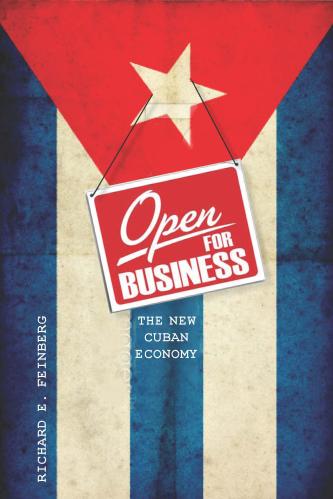
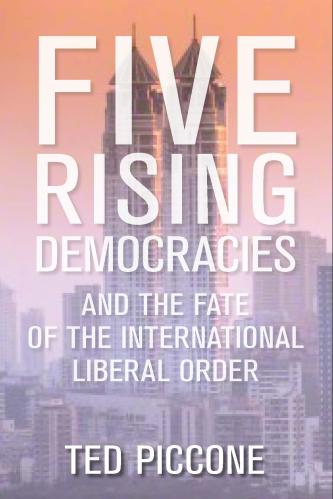
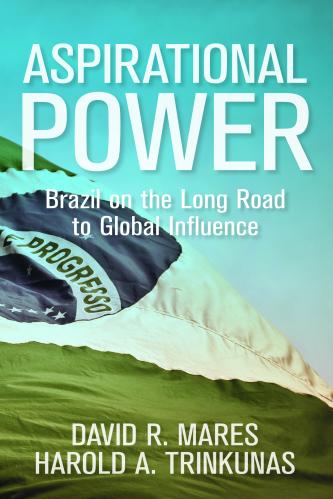
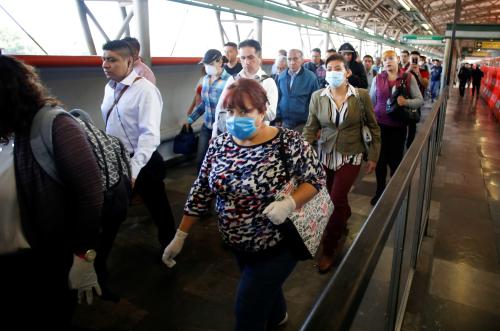
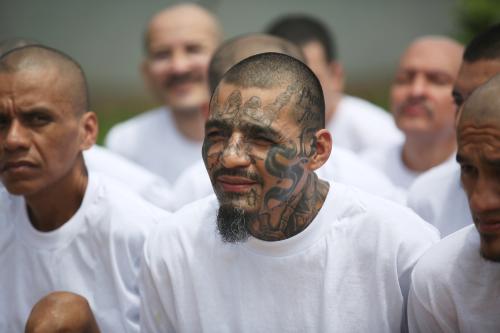
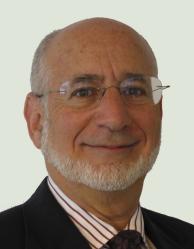
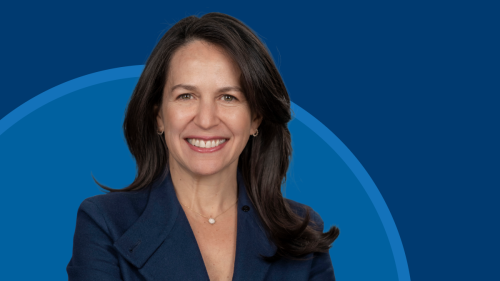
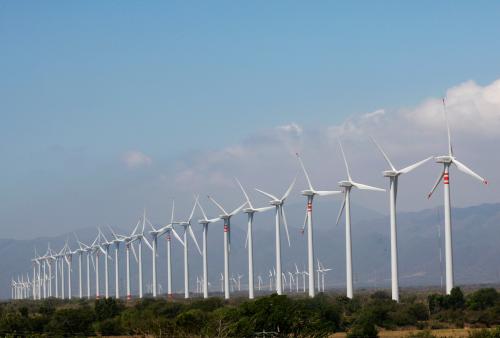

Commentary
Latin America yields to Trump’s pick to head regional bank
September 14, 2020